A third of a millennium ago, Samuel Pepys wrote in his diary about a New Year’s party at which he hear the “little Scotch song of Barbary Allen….”
Scholars often cite that Jan. 2, 1666, entry as evidence that this famous ballad — which tells the tale of a beautiful woman who denies a dying man's love, then dies of grief soon after his untimely demise — already was hundreds of years old by the time Francis Child collected it in the late 19th century.
Barbara’s Other Life
In fact, ethnomusicologists Steve Roud and Julia Bishop described it as "far and away the most widely collected song in the English language — equally popular in England, Scotland and Ireland — with hundreds of versions collected over the years in North America.”
Roud and Bishop wondered if the ballad was originally written for a stage performance.
Supported that, they point out that Pepys’ diary entry mentions hearing a professional actress name Elizabeth Knepp singing the song at that notable New Year’s party.
However, folklorists Phillips Barry and Fannie Hardy Eckstorm dispute that idea.
The ballad "was not a stage song at all,” they say, “but a libel on Barbara Villiers and her well-publicized adulteries with King Charles II.” Fellow folkie Charles Seeger liked that theory, adding that Pepys' delight at hearing a libelous song about the king's mistress would be perfectly in character for him.
Print and Recordings
“Barbara Allen” was frequently published in Britain throughout the 17th and 18th centuries, but it was not until 1836 that it appeared in America. After that, many variations were printed in broadsides in the United States through the 19th and 20th centuries.
The earliest recording of the song probably was a 1907 wax cylinder made by Lincolnshire folk singer Joseph Taylor. The first vinyl recordings were Vernon Dalhart’s in 1927 and Bradley Kincaid’s the following year.
Since then, some 500 traditional recordings have been indexed by the Vaughan Williams Memorial Library.
Where, Oh Where?
The song usually begins with a variation on the line, “In Scarlet Town where I was born there was a fair maid dwelling….”
Don’t bother looking; there is no such place as Scarlet Town, at least not in the geographical world recorded in the Britannica Atlas or in Google Maps. An invented name, it might be, some speculate, an ancient metaphor for a home of scarlet women.
However, Wikipedia is curious if “Scarlet Town" might be a punning reference to Reading, the town on the Thames and Kennet rivers in southern England. Supporting that theory is the fact that a 1790 version of the song has a reference to “in Reading town, where I was bound.”
Folk Revivalists
In the 1950s and ‘60s, most folk revivalists — Pete Seeger, Jean Ritchie and Joan Baez leading the list — recorded versions of the ballad.
Famously, Bob Dylan noted that folk songs are highly influential in his work. As he wrote in a poem, “Without ‘Barbara Allen’ there'd be no ‘Girl from the North Country.’” Early on, Bob performed an eight-minute rendition of the original ballad, which was subsequently released on his Live at The Gaslight 1962 album.
Our Take on the Tune
Charlie Bowen brought us our version recently after revisiting his own favorite rendition, Tom Rush’s 1963 pressing of the song (calling it “Barb’ry Ellen”) on Prestige/Folklore.
Like Rush, Charlie cultivates a slightly different melody line. He also brings in his resonator guitar and slide to give the tune a slightly bluesy quality. Then Danny Cox and Sam St. Clair add beautiful solos and Randy Hamilton provides the perfect subtle vocal harmonies along with his bass lines. Here’s the result.

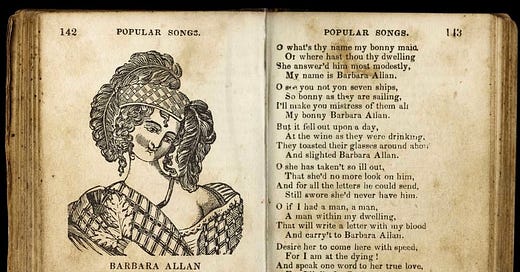



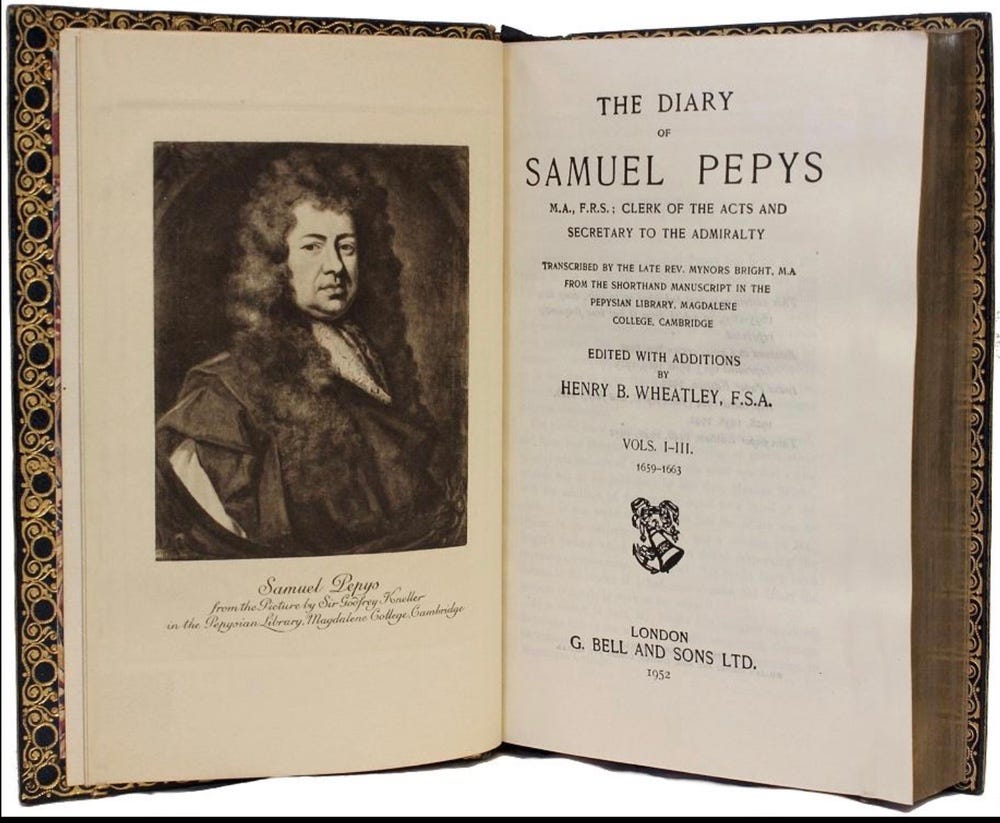
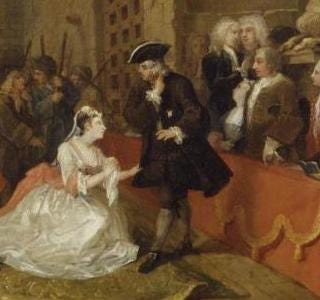
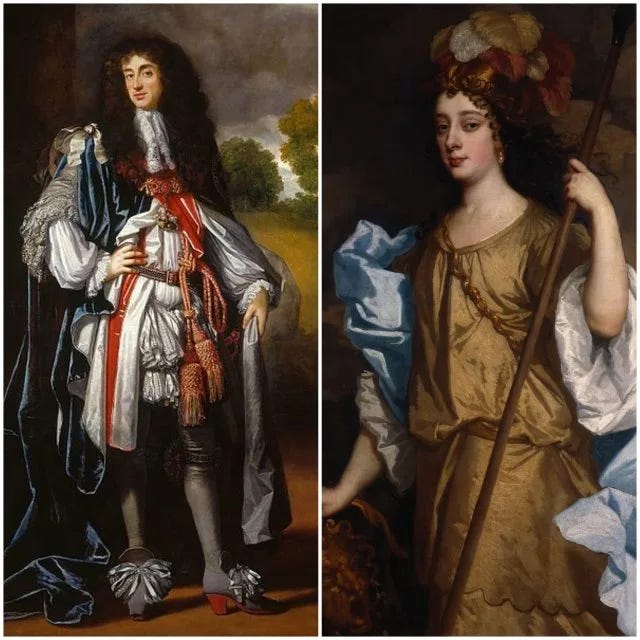
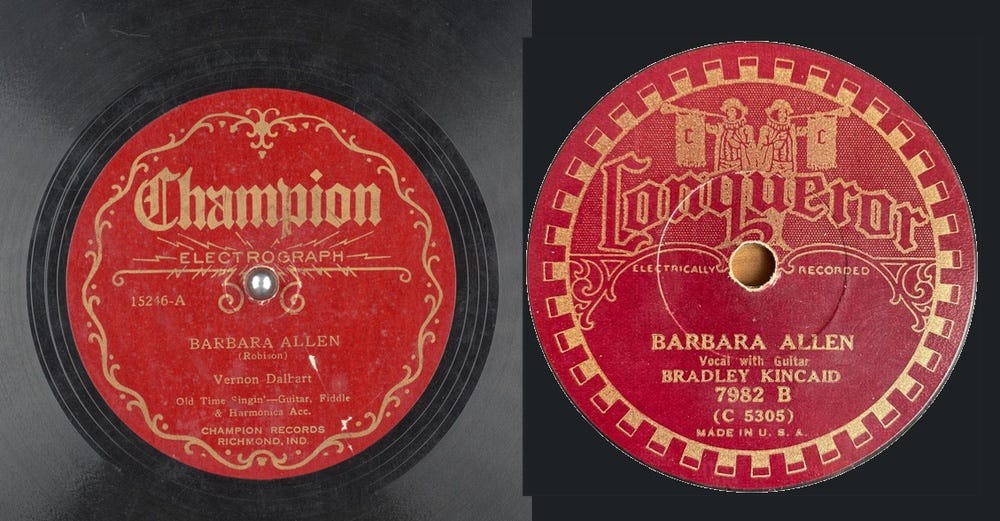
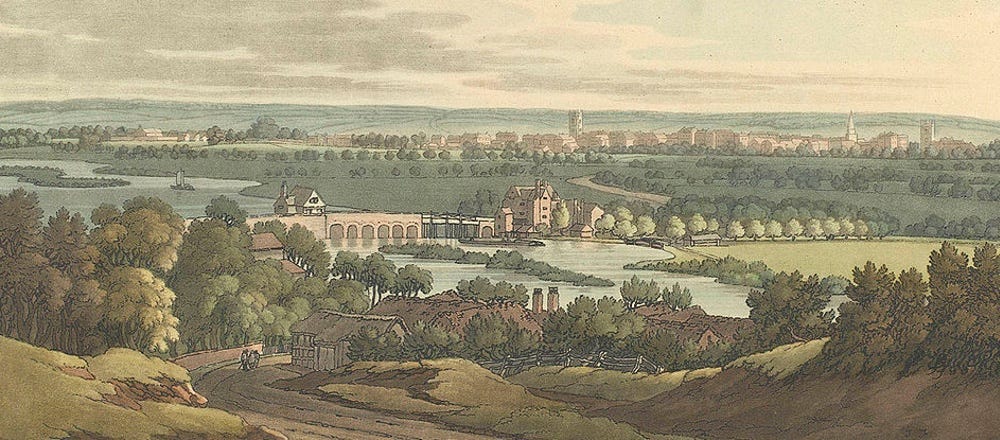
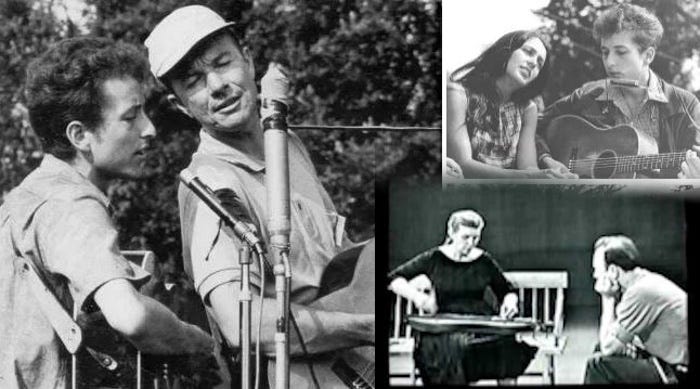
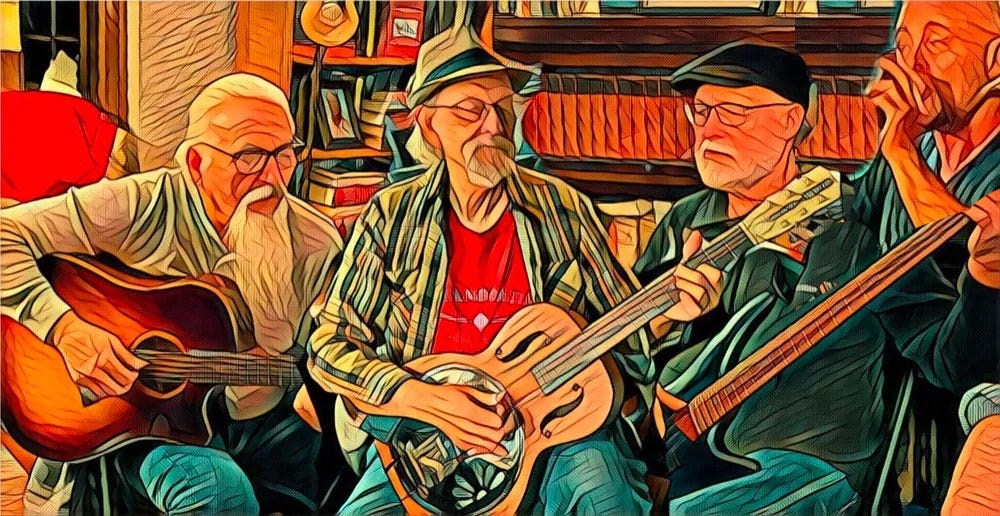








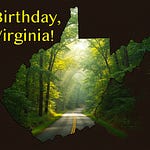
Share this post